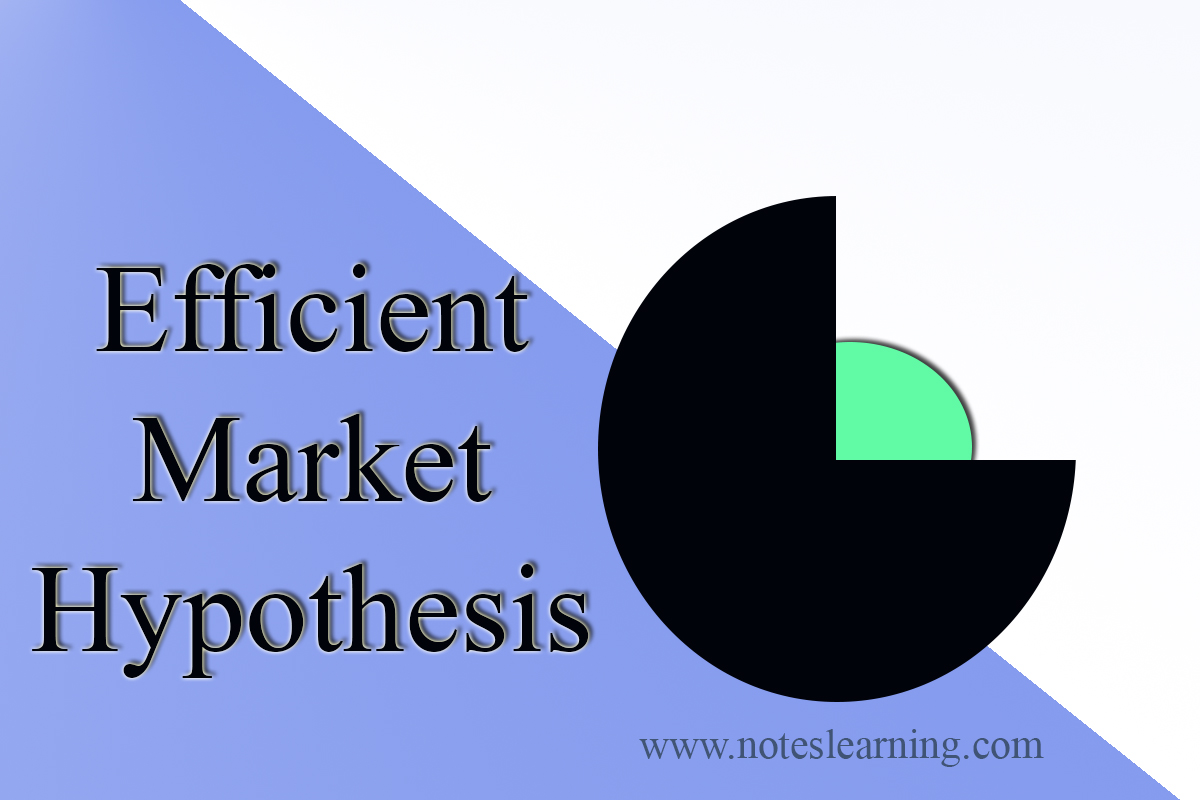The Efficient Market Hypothesis (EMH) is an investment theory primarily derived from concepts attributed to Eugene Fama’s research as detailed in his book “ Efficient Capital: A Review of Theory and Empirical Work” in 1970.
The EMH states that share prices reflect all the relevant information and it is impossible to beat the market or achieve above-average returns on a sustainable asset. The market has to form an equilibrium point on such market transactions, so the efficient market hypothesis says that it is difficult to use the information to profit.
The EMH essentially says that all known information about the investment securities, such as stocks, is already factored into the prices of those securities. The intrinsic value of the security is the present value of the expected cash flows that the investment will generate in the future. The market reflects all the newly available information in the market price so the investment can accurately forecast the expected future value.
EMH suggests that investors should earn a return on their investment based on their risks at the time perceived of investment. EMH basically suggests;
- Stocks always trade at a fair price and reflect all the valuable information at a particular time.
- It is practically impossible to purchase an undervalue stock and sell it at an inflated price.
- The only way an investor can possibly obtain a higher return than the market is by investing in riskier stocks.
As per the concept, the market price of a stock adjusts quickly and on average without any bias to the new information. As a result, the prices of the securities reflected all the available pieces of information at any given point in time. Therefore, there is no reason to believe that prices are too high or too low.
There are three forms of markets in EMH;
- Weak Form
- Semi-Strong Form
- Strong Form
Weak Form:
The weak form of the EMH assumes that the prices of securities reflect all the available public market information i.e. historic information but may not reflect new latest information that is not yet publicly available. It additionally assumes that past information regarding price, volume, and returns is independent of future prices.
The weak form of EMH implies the technical trading strategies cannot provide consistent excess returns because past price performance can’t predict the future price action. Weak form of market discounts technical analysis and leaves open the possibility that superior fundamental analysis may provide a means of outperforming the overall market average return on investment.
Semi-strong Form:
Semi-strong of EMH incorporates the weak-form market assumptions and expands on this by assuming that the price adjusts quickly to any new public information that is available, therefore rendering fundamental analysis incapable of any predictive power about the future price movement.
It implies neither fundamental nor technical analysis can provide an additional advantage for an investor and that new information is priced into securities instantly.
Strong Form:
The strong form of EMH holds that prices always reflect the eternity of both publicly and privately available information. This includes all publicly available information, both historic, contemporary, and insider’s information. Even information that is not exclusive to everyone i.e. available only to board members and executives.
So, according to the strong form of market in EMH, not even insiders’ knowledge can give investors an advantage that will enable them to consistently generate returns that outperform the overall market average.
It is necessary to understand that Efficient Market Hypothesis doesn’t mean:
- Stock Price cannot deviate from true value, in fact, there can be large deviations from its true value.
- No investors will beat the market at any period of time. To be contrary, approximately half of all investors prior to transaction costs should be able to beat the market.
- No group of investors will beat the market in the long run.

